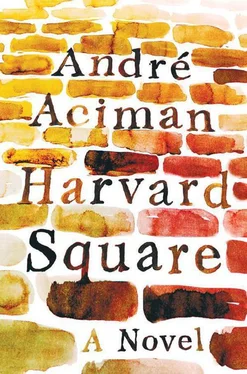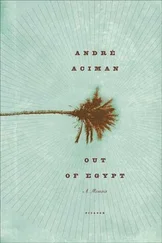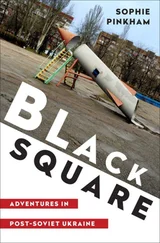There are two kinds of men about town in France: flâneurs and dragueurs . As becomes obvious in no time, la drague— cruising — is not a hobby, not a science, not an art, not even a question of odds and probabilities. With him it was the perfect alignment of will with desire. His desire for a woman was so relentless that it would never cross his mind that a woman might not desire him back. He never doubted that a woman wanted him. They all did. As far as he was concerned, all women wanted all men. And vice versa. What stood in the way between a man and a woman at Café Algiers was a few chairs, a table, maybe a door — material distance. All a man needed was the will and above all the patience to wait out a woman’s scruples or help her brush them aside. As in a game of penny poker, he explained, all that matters was simply the will to keep raising the pot by a single penny each time; a single penny, not two; a single penny was easy, you wouldn’t even feel it; but you had to wait for her to raise you by a penny as well, which is when you’d raise her by another, she by yet another, and so on. Seduction was not pushing people into doing things they did not wish to do. Seduction was just keeping the pennies coming. If you ran out, then, like a magician, you twirled your fingers and pulled one out from behind her left ear and, with this touch of humor, brought laughter into the mix. In the space of fifteen minutes one morning, I saw him offer a woman a cinquante-quatre —a fifty-four-cent cup of coffee, tax included — put his arm around her each time he burst out laughing, and be off with her.
“But don’t get me wrong. In the end it’s always the woman who chooses you, not the other way around — always the woman who takes the first step.”
“What about all this bit about raising them with a penny each time?” asked Young Hemingway.
“That was bunk,” Kalaj replied.
“And Nostradamus, then?”
“Bunk too.”
His friend stood up to go to the bathroom, huffing, “Nostradamus — really!”
No sooner has he left our table than Kalaj said, “I can’t stand this guy.”
“I thought you were friends.”
Dismissive smirk again. “With that face of his? Are you serious?”
Suddenly, Kalaj put on a pouting face, stared intently at his cup, meditated on its shape, and began spinning the cup ever so slowly on its saucer. It took me a moment to realize what he was doing. He was mimicking Young Hemingway’s way of pondering every syllable coming out of Kalaj’s mouth. I burst out laughing. He laughed as well.
AT CAFÉ ALGIERS, people dubbed him Che Guevara or el révolutionnaire , but mainly they called him Kalaj, short for Kalashnikov. “Have you seen Kalaj?” they’d say. Or: “Kalaj is haranguing the brotherhood of man over at Casablanca.” It meant he is arguing about politics in Cambridge’s most popular bar. Or: “Kalaj shouldn’t be long, it’s almost l’heure du thé , teatime,” some of the regulars would say to make fun of how ill-suited he was for anything resembling the ritual civility of five o’clock tea. Sometimes you could even hear him arguing with someone on his way to the café, always loud and contentious. “Our soldier approaches,” one of the waitresses would say. Told he shouldn’t argue so much, he’d snap back and say “I wasn’t arguing.”
“Then what would you call it?”
“It’s how I talk. I can’t change how I talk. It’s who I am.”
And out sputtered louder protestations yet: he was no hush-hush, privacy-enamored ersatz American. Nor was he the simpering, self-effacing, you do your thing, I’ll do mine, and let’s all get along fine type who thronged the bars and coffeehouses of Harvard Square. Not who I am, he’d repeat, emphatically, as if this were the simplified version of a complicated syllogism he’d picked up years ago in a crash course on identity, chatter, and wit in some working-class café on rue Mouffetard in Paris where your nickname is branded on your forehead, your clothes, and your feet. Everything I am and everything I feel is written on my face. I am a man — you understand?
He excelled at tawdry existential fluff and superannuated clichés pawned off like darned-up hand-me-downs that had just enough bluster to spirit another generation of deadbeat combatants from who knows what battlefield — anything to impress a woman listening in on his conversation at the moment.
And listen in is what most women did. They were there at Café Algiers that first day I saw him, listening at every corner. But it took me weeks to realize that everything he was, said, and did was intended to accomplish one thing only: to rouse a woman’s interest — any woman’s. Everything was show, everyone knew it, and everyone fell in with it. Identity as performance, courtesy Café Mouffetard. Sometimes a costume was all the identity you needed. Anger itself, like passion, like laughter, like his most ineradicable beliefs, was, when all was said and done, for show.
Sometimes.
Sometimes, after a near squabble had been averted between him and Moumou, an Algerian regular at Café Algiers, I’d draw my chair closer to his and try to tidy things over by saying something as hackneyed as “He didn’t mean a thing by it.” “He meant every last word of it,” he would say, raising his voice as though about to start an argument with me now. One had to be patient with him, yield a bit, reason a bit, give him the breathing space he needed to let off steam, because steam, vapors, fumes he had plenty to let off. Zeinab, the waitress who was also Tunisian and who had a temper of her own, especially with customers when they didn’t tip well or asked for too many refills or more variations on the café’s bare-bones menu than she wished to remember, would become sweetness itself when she saw him flare up with one or another regular there. “ Oui, mon trésor, oui, mon ange, yes, my treasure, yes, my angel,” she would whisper, and whisper again, as if smoothing down the ruffled hair on a cat that had just seen a mean dog. You didn’t argue with him when he got that way; you simply said something sweet and soothing. “I know exactly how you feel, I know, I know,” I’d say, until it was time to speak reason, “but how do you know he meant what he said?” I’d whisper. “I just know, oké ?” Oké here meant, End of argument. Go no further. Get it? I didn’t always know how to tame his temper. Oké was his way of nipping what could easily erupt into a squabble between us as well. “Why be so sure?” I’d whisper, all the while trying to press the point and show there was no risk of our ever getting into an argument but also to make him see things from what the rest of the world calls another perspective —a totally foreign concept to him. In his world, there was not and was never going to be another perspective. When we couldn’t arrive at a consensus, he’d look away from me and say, “Leave it alone, I said.” Silence. And he’d right away order a fifth cup of coffee. “Leave. It. Alone,” he’d repeat.
To emphasize the silence that had dropped like a deadweight between us, he’d quietly pick up the emptied cup before him, remove the spoon, which he’d always leave inside when drinking coffee, and place it neatly and deliberately on the cup’s saucer, as if trying to straighten things up and bring order in his life. It was his way of saying See, you’ve upset me, I’m trying to compose myself. You shouldn’t have said what you just said. A moment later, he’d be all laughter and jokes again. A woman had walked into the café.
Kalaj’s place at Café Algiers was always the same. Center table — not just to be seen, but to know exactly who was coming in or stepping out. He liked to sit inside, never outside, and, like almost everyone born and raised on the Mediterranean, preferred the shade to sunlight. “This is where Kalashnikov takes position, aims, and fires,” said Moumou, who, like Kalaj, was also a cabdriver and loved to tease him, the way an Algerian and a Tunisian like to chafe at each other before their taunts degenerate into a full-fledged tussle of words — which invariably happened when one or the other or both lost their tempers. “Either he sits there with his Kalashnikov between his knees waiting for you to make a false move or he’ll smoke you out, pin you down, and then, when you least expect it, bellyache you to death about his women, his visa, his teeth, his asthma, his monk’s cell on Arlington Street where his landlady won’t allow him to bring women upstairs because he makes them scream — did I leave anything out? A Kalashnikov with perfect night vision. You name it, he shoots it down.” Their arguments and taunts were legendary, epic, operatic. Kalaj would say, “I’ve got the eyes of a lynx, the memory of an elephant, the instincts of a wolf…” “. . and the brain of a tapir,” would interrupt his nemesis, the Algerian. “You, on the other hand,” Kalaj would retort, “have the looks and sneaky bite of a scorpion, but you’re a scorpion without a tail, a tail without venom, a quiver without arrows, a fiddle without strings — shall I go on, or do you get my drift?” he’d say, alleging the Algerian’s notorious failure to achieve an erection. “At least this scorpion here will take anyone to the top of the mountain — ask around! — whereas with you, they’ll barely scale a tiny molehill, give out a courteous little yelp to torment the old lady’s sleep, and seldom come back. I can go on if you wish…” would come the Algerian’s not so oblique reference to Kalaj’s marriage that scarcely lasted a fortnight. “Yes, but during those few moments up that tiny molehill I’ve done things you can’t even remember doing since you were twelve years old, despite all the horse pills I hear you take four times a day that will do more for your bunions than for the little pinkie the good Lord gave you and which you wouldn’t know what to do with except put it in your ear.” “Shush, everyone,” the Algerian would interrupt when the place was more or less empty in the early morning and their jibes were not likely to disturb customers, “Monsieur Kalashnikov is going to impugn my manhood — speak to him if you dare, but wear a bulletproof vest.” “Oh, it’s our Arab comedian coming out of his magic lamp, fart end first,” Kalaj would retaliate, putting down yesterday’s Le Monde , which he picked up every day for free from the international newspaper stand on Harvard Square because it was already twenty-four hours old and no one else wanted it.
Читать дальше












